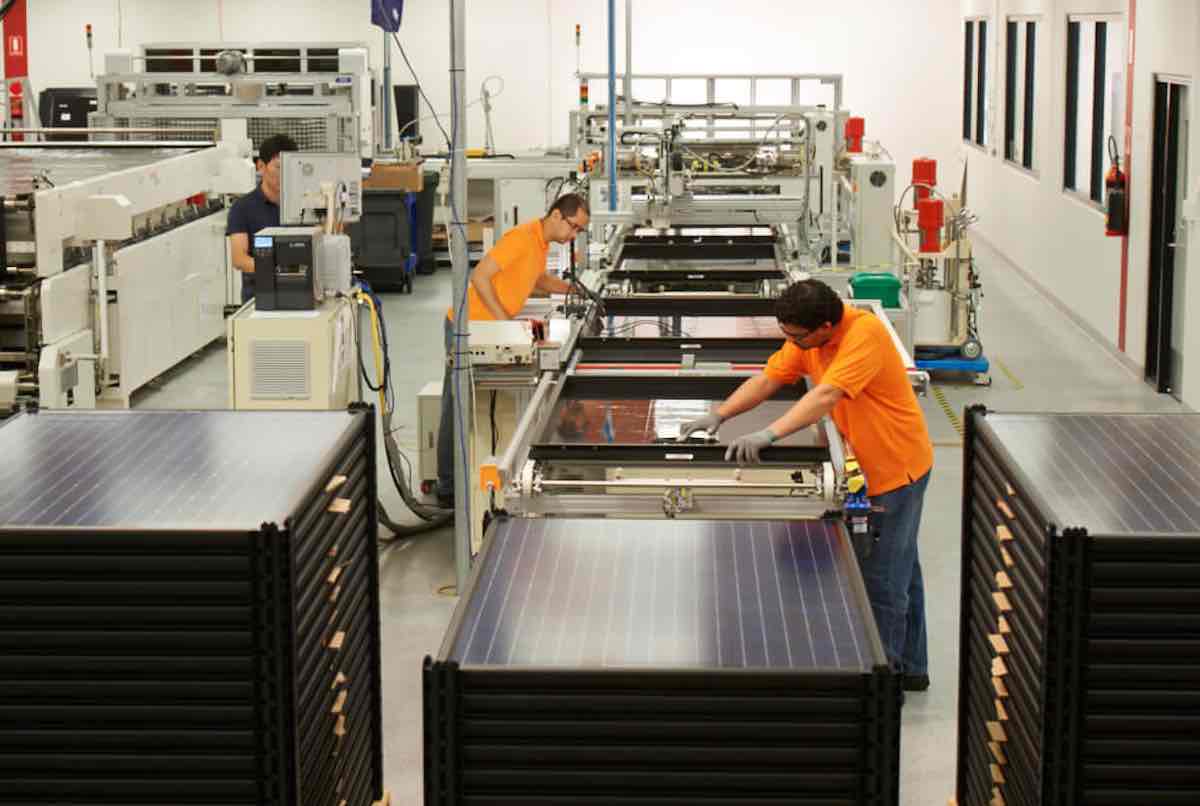The Australia government has been urged to forget about trying to match the US on green hydrogen opportunities and instead focus on the country’s biggest opportunity – to use its mineral wealth and green electricity to clean up the supply chain for solar modules, wind turbines and battery storage.
The call has come from Australian owned Quinbrook Infrastructure, a multi-billion investor that is based in the UK but conducts most of its in the US, where it is ranked as the biggest solar farm developer.
CEO and co-founder David Scaysbrook says it would be “fiscally insane” for Australia to try and match the investment and production tax credits offered by the US Inflation Reduction Act.
He pointed to the recent decision by the likes of Fortescue, Woodside and others to prioritise green hydrogen project investments in the US, rather than Australia, and says rather than trying to match the US economic power, Australia should focus instead on its critical mineral opportunities.
“Rather than call on the federal government to go toe to toe with the Biden administration on matching subsidies, which I think is ridiculous, we should be looking more opportunistically at the supply chain and what the inflation Reduction Act means in terms of opportunity and trading partnerships,” Scaysbrook told a media briefing on Tuesday.
He is in no doubt that Australia’s strength lies in its resources of minerals critical to making solar modules, wind turbines, and battery storage, and the opportunities of a decarbonised grid in processing those minerals with no emissions.
The world, including the US, is almost entirely dependent on China for the supply of key components of the solar module supply chain. But its supply is tainted by a high emissions grid, allegations of “slavery” in Xinjiang province, and the potential deterioration of US-China relations.
“I think there are opportunities for Australia to capture quite a lot of the solar supply chain in particular,” Scaysbrook says.
“And there are initiatives right now, including those that were involved in, that would ensure quite a lot of the solar manufacturing supply chain here in Australia.
“And the reason for it is that we can decarbonise it, and that’s a really, really crucial point that I’m making. If it’s just a piece of dirt, and you want to build a module factory, what does Australia offer that Malaysia doesn’t or Vietnam does, because that’s where the jobs are going. And the factories are going right now.
“And the reality is because we can decarbonize it with cheaper renewables. So if we were to make polysilicon in Australia, we could make the greenest polysilicon on the planet.
“Now, when the bulk of the solar modules outside China are being bought by people like Quinbrook, who actually care about the carbon intensity of the manufacturing process for that solar module, and we care that the workers that made it were paid fairly and equitably and treated well, that creates a new market.
“It’s not just about the cheapest module coming out of China. This is why I say the IRA is so significant to Australia.
“If you look at Australia in an isolationist way and say, does it make sense to build a solar module manufacturing facility in Australia for the Australian market? I would say no, it doesn’t.
“Would it would it be possible to create a significant component of the solar manufacturing supply chain in Australia to serve not only the Australian market but the US? I would say most certainly it does.”
Scaysbrook says there is still hope for a green hydrogen industry in Australia, but one based on the domestic market rather than exports to Asia and elsewhere.
“It doesn’t mean that we look at all of the hydrogen ambitions that have been talked about around the market and say they’re all hopeless.
“What we would say is, we think some of the export orientated projects need a dose of reality to the IRA someone described it in on LinkedIn, which I thought was funny, which is they’re all on hopium if they’re not really looking at the effects of the IRA and what that means for their competing markets.
“It doesn’t mean there’s no prospects for green hydrogen in Australia. But if you’re competing against America, export to a Japanese facility. Good luck.”










